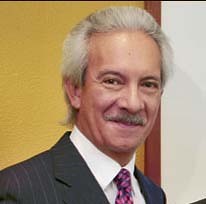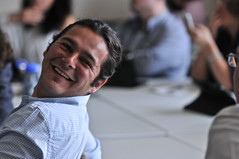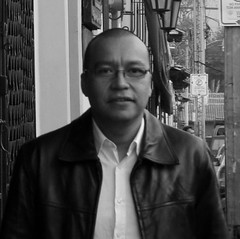The resignation of the president of Guatemala, Otto Pérez Molina, and his subsequent detention for alleged involvement in a corruption network, is not just a victory for democracy, but also for the new press growing to prominence in that country.
The investigative reporting that exposed these cases of corruption generated a wave of indignation that led to months of protest, and strengthened the work of the International Commission against Impunity in Guatemala (CICIG for its acronym in Spanish) and the Public Prosecutor’s Office.
Guatemalan daily elPeriódico is one of the publications that exposed these cases of corruption inside the government. According to its founder and director, José Rubén Zamora, for four years the newspaper has been exposing the "abuses" of not only Pérez Molina, but also of former vice president, Roxana Baldetti. The 2014 annual report of the Special Rapporteur for Freedom of Expression recounts different legal actions that authorities subsequently brought against Zamora and the media.
But this is not the only case. The magazine ContraPoder exposed a corruption network inside a prison, which, according to the director of the media outlet, led to the CICIG and public prosecutor’s first investigation of officials of Pérez Molina’s government.
The impact of digital native media sites like Nómada also have shown the power of online journalism. According to the site’s director, Martin Rodriguez Pellecer, one of their articles had as many Twitter mentions as an analysis interview on the international channel CNN En Español.
The Knight Center for Journalism in the Americas consulted a small group of journalists from Guatemala about their perceptions of the role played by media in the process that led to the resignation and arrest of Pérez Molina. And this is what they said.
José Rubén Zamora, founder and director of elPeriódico

José Rubén Zamora (Courtesy)
In the last four months, I'd say that all the press - with the exception of the television monopoly and radio duopoly that, as a rule, always support the government in power - turned against corruption and impunity, specifically against abuses, excesses, greed of Otto Pérez Molina and Roxanna Baldetti.
The four previous years, the press in general kept a complicit silence, with the notable exception of elPeriódicothat, in loneliness and marginalization, fought to exhaustion the corruption and impunity of former President Pérez, Roxana Baldetti, his ministers and senior officials, as well as the close relationship, partnership and alliance between the government and the mafia and criminal gangs, mainly in smuggling and drug trafficking.
The government’s response was enormous: a severe boycott based on threats to private advertisers, which reduced revenues by 55%, prompting the newspaper to reduce its operations to 106 colleagues and collaborators, continued fiscal persecution, more than 150 criminal complaints from senior officials against José Rubén Zamora, 14 attacks on the webpage that among other harm, damaged text and photo archives from 18 years of the newspaper, constant spying, smear campaigns, attacks on journalists of the newspaper, threats and constant harassment and the “theft” of key and highly professional staff, with offers of “irresistible” work.
The investigations of the newspaper have been the foundation of the investigations of the CICIG and Public Prosecutor.
Claudia Méndez Arriaza, deputy director of magazine ContraPoder

Claudia Méndez Arriaza (Courtesy)
The press played a decisive role. Daily elPeriódico showed leadership in revealing the disproportionate wealth of government leaders. The other media followed that agenda. And these were typical initiatives of the newspapers.
There was a factor that changed that coverage and previous "simple" public complaints, they became judicial investigations. Notable in this field, for example, are two investigations that the International Commission against Impunity (CICIG) and the Public Prosecutor used as the basis of cases that are on the way to the courts:
1. elPeriódico constantly published on the houses that the former vice president acquired and the standard of living that she had disproportionate to her previous economic profile. Today, following a case of customs corruption, that wealth shown by elPeriódico is in the forfeiture process.
2. ContraPoder revealed the power of a prisoner, Byron Lima Oliva, inside prisons, and under the headline "Nobody is able against Lima" they triggered investigations that unleashed the first case of CICIG and the special prosecutor that revealed corruption of the government of Otto Pérez Molina. There they discovered that the prisoner hatched a plan with officials and inmates so that the prison system became the headquarters of their business: he charged for everything (transfers, entrances, visits) with the permission of the authorities.
3. Prensa Libre showed the power of Baudilio Hichos, a deputy-chief of the town of Chiquimula. It became an investigation that is today a preliminary hearing against the politician because he used his position to favor his relatives, but also [made] onerous Social Security contracts that would favor some of their companies.
4. Another ContraPoder investigation that became a case is the theft within the National Civil Police. It revealed that at least US $ 1.5 million were slowly extracted by a subdirector of the public forces. Today the main leaders are under criminal investigation and prosecution for this case.
If you combine the journalistic tradition of revealing abuses, corruption, to the presence of CICIG and the spirit that the public prosecutor injected to pursue these facts, then you find that the public reacted to the revelations in a different way. This level of rejection has never been seen.
Martín Rodríguez Pellecer, founder and director of Nómada

Martín Rodríguez Pellecer (Courtesy)
I think that [the media] played a major role. The mainstream media have given way, in particular, to three new media. Canal Antigua, led by Juan Luis Font; digital site Soy502.com, a buzzfeed led by Dina Fernandez; and Nómada.
Guatemala is the country that is growing fastest in terms of internet penetration. 3.5 million users out of 9 million adolescents and adults. And five years ago there were only 1 million users.
I give you two examples of this influence. One is that marches #RenunciaYa (#ResignNow) and #JusticiaYA (#JusticeNow) were convened from Facebook. "Salimos de Facebook" (“We left Facebook”), as in Brazil. And another is that there was an interview of [presidential candidate Manuel] Baldizón on CNN. And at Nómada we wrote a post counting the number of lies he told in the interview. There were so many tags to CNN and to journalist Fernando del Rincón by readers (and Tweeters), that they invited me to the program to tell them about the article.
Yes, there is a new generation of journalists and media taking watchdog reporting to higher levels. Several are in the digital world. Soy502, Nómada and Plaza Pública.
I have never felt so read, so appreciated and so beloved in 15 years as a journalist. Readers now respond to the investigations.
Carlos Arrazola, editor at Plaza Pública

Carlos Arrazola (Courtesy)
The media in general have had strong involvement in favor of the fight against corruption and the investigations that the prosecution and CICIG conducted since April 16, which, so far, have resulted in the resignation and prosecution of Vice President Roxana Baldetti and President Otto Pérez Molina.
According to the specialty of each media - research, depth, breaking news - they have provided important information for understanding the origins, causes and motives of corruption, which has been fundamental to the social groups that have access to them for uniting the spontaneous social movement that arose from the political crisis.
From the opinion pages, although the columnists have strong political and economic interests, the debate has been enriching and purposeful.
The only major exception has been media from the Albavisión chain, owned by Ángel González of Mexico (radio Sonora, which has wide coverage and national influence, as well as four broadcast television channels), which, although they have given coverage to the process, they have also manipulated much of the information, either downplaying facts some facts or magnifying others, with the objective of favoring the interests of the fallen government, of accused officials or of political parties that have been identified as having links with criminal organizations.
María Emilia Martin, Centro GraciasVida Para los Medios de Comunicación

María Emilia Martin (Courtesy)
I think that the media played an important role in focusing and reporting not only the legal facts, but also in reporting the demonstrations as the historic events that they have been -- cancelling regular programming to air these live, and not only from Guatemala City but from throughout the country.
The fact that there were attempts to block and launch cyberattacks against independent media is also an indication of the key and vital role these have played in the democratic opening in Guatemala of the last few months.
Ileana Alamilla, director of Cerigua

Ileana Alamilla (Courtesy)
In general, the media produced extensive coverage throughout this process, both written press, radio and television, with news, photos, reports, analysis, etc.
I think it was very important, it had a lot of influence on public opinion, as is well-known. There was impressive coverage all day today, almost since dawn, and the same is expected tomorrow.
Note from the editor: This story was originally published by the Knight Center’s blog Journalism in the Americas, the predecessor of LatAm Journalism Review. Teresa Mioli contributed to this report.